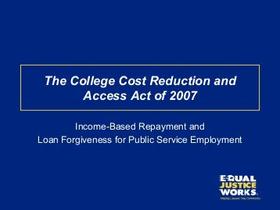- Central Maine Community College is a public community college in Auburn, Maine. It is part of the Maine Community College System.
School Highlights
Central Maine Community College serves 4,152 students (39% of students are full-time).
The college's student-teacher ratio of 24:1 is higher than the state community college average of 17:1.
Minority enrollment is 34% of the student body (majority Black), which is more than the state average of 22%.
Quick Facts (2025-26)
- Enrollment: 4,152 students
- In-state tuition: $3,750
- Out-state tuition: $6,450
- Student-teacher ratio: 24:1
- Minority enrollment: 34%
- Source: Integrated Postsecondary Education Data System (IPEDS)
Top Rankings
Central Maine Community College ranks among the top 20% of public schools in Maine for:
Category
Attribute
Diversity
School Overview
The teacher population of 171 teachers has stayed relatively flat over five years.
Central Maine Community College
(ME) Community College Avg.
Carnegie Classification
Associate's Colleges: Mixed Transfer/Career & Technical-High Traditional
Associate's Colleges: High Transfer-High Nontraditional
Institution Level
At least 2 but less than 4 years
At least 2 but less than 4 years
Institution Control
Public
Public
Total Faculty
171 staff
122 staff
School Calendar
Student Body
The student population of Central Maine Community College has grown by 29% over five years.
The student-teacher ratio of 24:1 has increased from 18:1 over five years.
The Central Maine Community College diversity score of 0.53 is more than the state average of 0.38. The school's diversity has declined by 8% over five years.
Total Enrollment
4,152 students
2,238 students
Student-Teacher Ratio
24:1
17:1
# Full-Time Students
1,601 students
629 students
# Part-Time Students
2,551 students
1,609 students
# Enrollment Undergraduate
415 students
334 students
# Full-Time Undergraduate Students
1,601 students
629 students
# Full-Time Graduate Students
n/a
7 students
# Part-Time Undergraduate Students
2,551 students
1,609 students
# Part-Time Graduate Students
n/a
77 students
Total Dormitory Capacity
250 students
138 students
% American Indian/Alaskan
n/a
1%
% Asian
1%
2%
% Hispanic
3%
3%
% Black
8%
5%
% White
66%
78%
% Hawaiian
n/a
n/a
% Two or more races
2%
3%
% Non Resident races
2%
1%
% Unknown races
17%
7%
Diversity Score
0.53
0.38
College Completion Rate (Students who graduate in less than 4 years)
23%
24%
College Completion Rate (Students who graduate in 4 years or more than 4 years)
n/a
42%
Average Graduate Earnings (10 Years)
$36,000
$33,900
Tuition and Acceptance Rate
The public in-state tuition of $3,750 is less than the state average of $4,020. The in-state tuition has stayed relatively flat over four years.
The public out-state tuition of $6,450 is less than the state average of $7,666. The out-state tuition has stayed relatively flat over four years.
In-State Tuition Fees
$3,750
$4,020
Out-State Tuition Fees
$6,450
$7,666
% Students Receiving Some Financial Aid
84%
81%
Median Debt for Graduates
$12,637
$12,000
Median Debt for Dropouts
$5,500
$5,500
Acceptance Rate
n/a
86%
SAT Reading
n/a
445
SAT Math
n/a
500
SAT Writing
n/a
430
Source: 2024 (or latest year available) Integrated Postsecondary Education Data System (IPEDS) , School Administrators
School Notes
- Central Maine Community College traces its origin to 1963 when the 101st Maine Legislature submitted to public referendum the question of establishing a postsecondary vocational training program in Androscoggin County. The voters of Maine gave their consent for such an institution in November, 1963, and in September, 1964, Androscoggin State Vocational Institute opened in the facilities of a former automobile dealership at 385 Main Street, Lewiston. In 1965 the State Board of Education renamed the institution Central Maine Vocational Technical Institute and in January 1966, CMVTI was moved to the present campus on Turner Street in Auburn. The Legislature changed the name of Central Maine Vocational Technical Institute to Central Maine Technical College in 1989 to more accurately reflect CMTC's role and status as a comprehensive institution of higher education. On July 1, 2003, CMTC became Central Maine Community College, offering transfer degrees in the arts and sciences as well as career and technical programs. During its first year, the institution enrolled 48 students in four programs (Auto Mechanics, Building Construction, Industrial Electricity, and Architectural Drafting) and was staffed by 13 persons, of whom seven were instructors. The first graduating class, consisting of six students, received diplomas in June 1965.Today there are more than 2500 students enrolled in Central Maine Community College courses. In addition, an estimated 2,000 area residents participate each year in conferences, courses and programs offered through the Corporate and Community Services Division of the College. The students are served by approximately 150 faculty and staff members. Each year more than 300 students graduate with an associate’s degree, certificate or diploma. The College offers educational opportunities for both transfer to baccalaureate programs and career preparation. Associate in arts and associate in science degrees are designed as the first two years of a more advanced degree. The associate in applied science degree, certificates, and diplomas are designed to prepare students for direct entry into the workplace.
Frequently Asked Questions
How much does Central Maine Community College cost?
Central Maine Community College's tuition is approximately $3,750 for In-State students and $6,450 for Out-State students.
What is Central Maine Community College's ranking?
Central Maine Community College ranks among the top 20% of community college in Maine for: Diversity in US community colleges and Average community college minority breakdown.
Recent Articles

Community College Success Rates 2025: Outcomes & Trends
Updated 2025 analysis of community college success rates, completion, transfer, costs, enrollment, and strategies that shape student outcomes.

Community Colleges in 2025: Combating Stereotypes with Impact
Updated insights on how community colleges are dispelling myths, growing enrollment, and expanding pathways in 2025.

2025 FAFSA Changes Explained for Community College Students
A comprehensive guide to 2025 FAFSA changes, what community college students must know, new eligibility rules, timelines, and tips to maximize federal aid.










